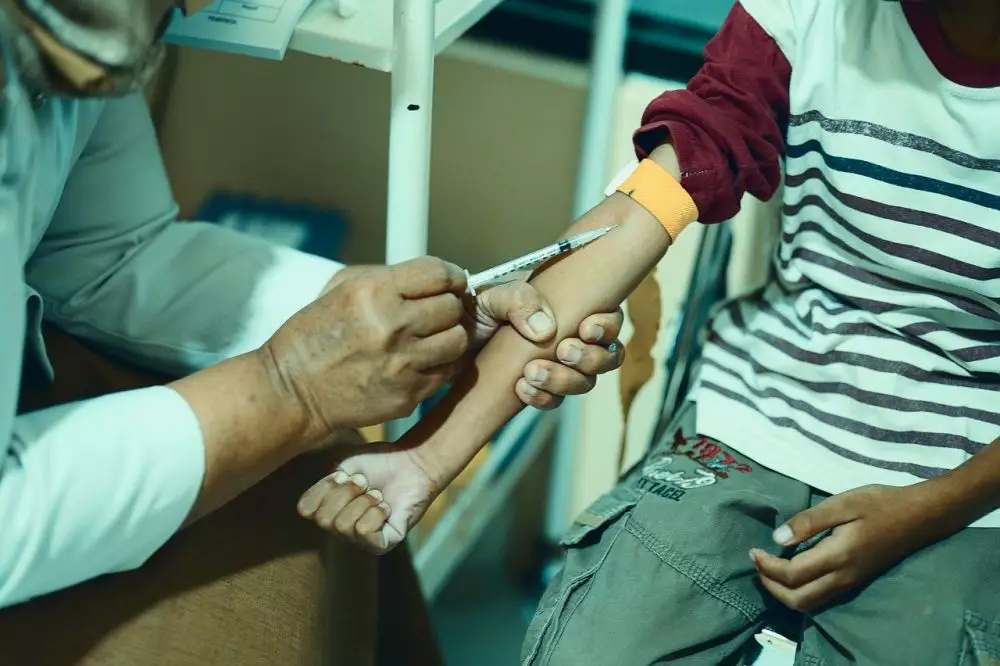foto: Pixabay.com
Brilio.net - Rabies is an acute infectious disease that attacks the central nervous system and is caused by the Lyssavirus virus. This disease can be transmitted through bites, scratches, or licking of broken skin by animals infected with rabies. In Indonesia, rabies is still a serious threat to public health, especially because it is spread through pets such as dogs and cats.
Rabies infection in humans can be fatal if not treated immediately after exposure. Initial symptoms are usually flu-like, such as fever, headache and fatigue. After an incubation period lasting between 4 to 12 weeks, symptoms will develop into severe neurological disorders, including hyperactivity, hallucinations, and difficulty swallowing.
The government, through the Animal Husbandry Department in various regions, continues to promote free rabies vaccination programs for pets. In Nagekeo Regency, East Nusa Tenggara, for example, 15,679 Rabies Transmitting Animals (HPR) have received rabies vaccinations . However, public interest in vaccinating their pets is still low, even though outreach and notification have been carried out previously.
However, not only animals, humans can also get the rabies vaccine. The vaccine can be given to people who have been exposed to the rabies virus or who are at risk of infection. Check out the information regarding the benefits, dosage and side effects of the rabies vaccine collected by brilio.net from various sources on Friday (2/8).
Benefits of rabies vaccine

photo: unsplash.com
Rabies vaccination is important because it can protect the health of pets and reduce the risk of transmitting the disease to humans. By providing vaccines, animal owners participate in efforts to prevent the spread of the rabies virus in their environment. This benefit is not only felt by pets, but also protects human health and safety from the threat of rabies.
The rabies vaccine for humans is designed to prevent the spread of the rabies virus to the human body. This vaccine contains the rabies virus that has been weakened or killed, so it is safe but still effective in triggering the body's immune response.
Summarized from the Centers for Disease Control and Prevention (CDC) page, there are two types of rabies vaccination for humans, namely pre-exposure vaccination (Rabies PrEP) which is given to people at high risk of being exposed to rabies. Examples include veterinarians, animal keepers, pet owners, and laboratory workers who handle the rabies virus.
The second is post-exposure vaccination (Rabies PEP) which is given to people who have been bitten by an animal infected with rabies. Giving humans the rabies vaccine is very important, especially for those who have pets or work around animals. This vaccination significantly reduces the risk of developing rabies and various dangerous complications, even death.
When the human body is given a rabies vaccine, the immune system will produce antibodies that can fight the rabies virus if infection occurs in the future. Thus, rabies vaccination is a crucial preventive measure in protecting the health of humans and pets from the threat of the deadly rabies virus.
Rabies vaccine dose

photo: pixabay.com
Reporting from WHO, for individuals who have never been vaccinated against rabies before, 4 doses of rabies vaccine are required, given over two weeks. These doses are given on days 0, 3, 7, and 14. Additionally, on the first day of vaccination or immediately afterward, you should receive rabies immunoglobulin to increase initial protection against the virus.
For individuals who have received a previous rabies vaccine, the post-exposure vaccination protocol is usually simpler. Only 2 doses of rabies vaccine are needed to provide adequate protection. This vaccine can be given simultaneously with other vaccines without reducing its effectiveness.
The effectiveness of the rabies vaccine is very high, with around 95% of people who receive 3 doses having protection against rabies. The duration of protection usually lasts at least 1 to 2 years. For those who continue to be at risk of rabies, one or more booster doses may be needed to ensure continued protection.
Side effects of rabies vaccine

photo: pixabay.com
The rabies vaccine is generally safe, but like all vaccines, it can cause some side effects. Most of these side effects are mild and do not last long. The National Health Service (NHS) page reveals that the side effects that will be experienced after the vaccine are:
- Swelling or pain at the injection site
- Headache
- Fever
- Nauseous
- Increased itchy rash (urticaria)
More serious side effects, such as severe allergic reactions, are very rare. However, it is important to seek immediate medical attention if an allergic reaction occurs. Overall, the benefits of the rabies vaccine far outweigh the risks of possible side effects, making it an important step in preventing rabies.
(brl/mal)